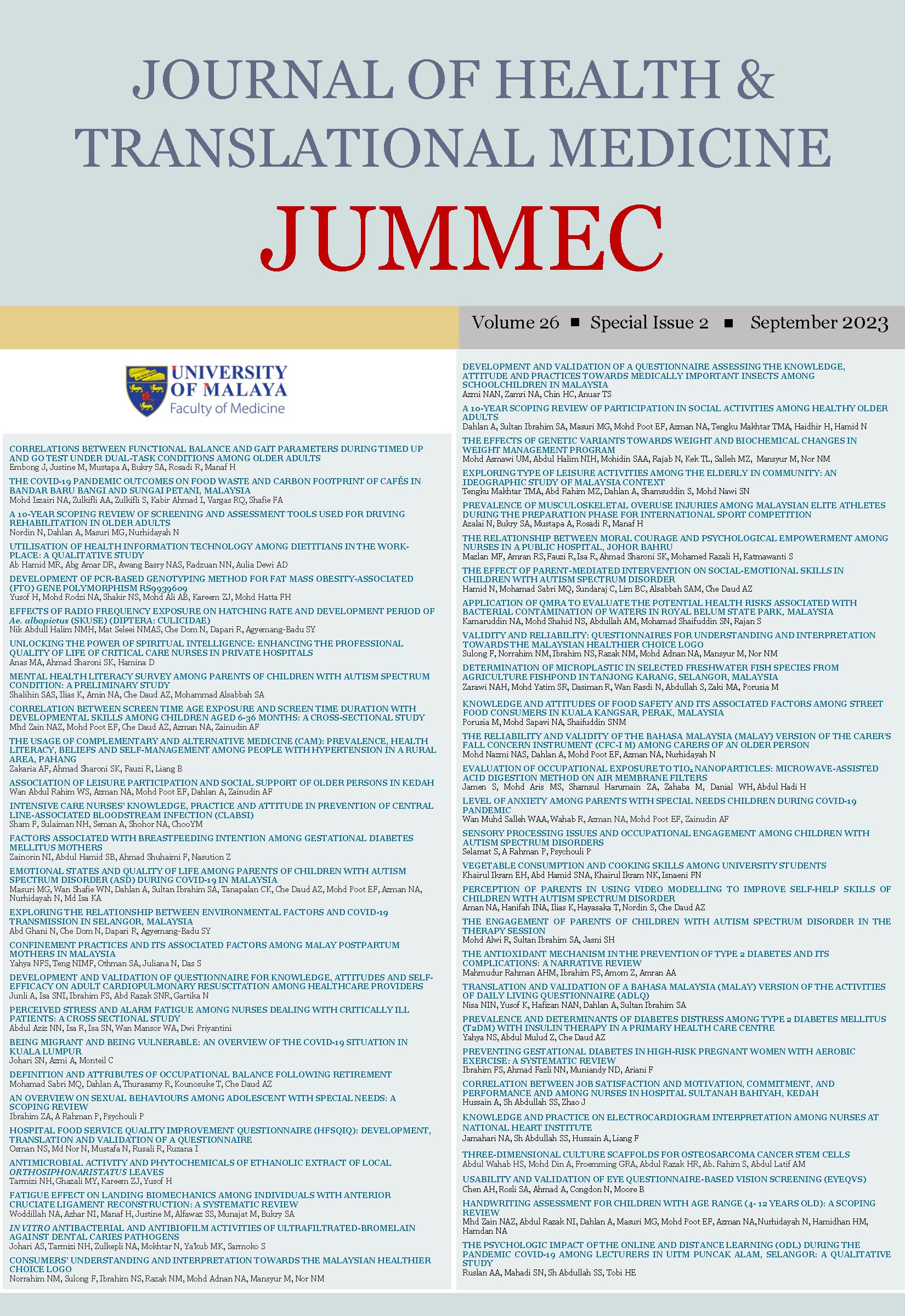CORRELATION BETWEEN SCREEN TIME AGE EXPOSURE AND SCREEN TIME DURATION WITH DEVELOPMENTAL SKILLS AMONG CHILDREN AGED 6-36 MONTHS: A CROSS-SECTIONAL STUDY
Received 2023-07-07; Accepted 2023-08-09; Published 2023-09-15
DOI:
https://doi.org/10.22452/jummec.sp2023no2.9Keywords:
Screen Time, Screen Age, Children's DevelopmentAbstract
Excessive screen usage is becoming a contentious issue, and research is being done to identify strategies to limit screen time. The child’s age might influence parents' decisions on screen time and the amount of exposure. Thus, this study was carried out to examine the correlation between screen time age exposure and screen time duration with developmental skills (communication, problem-solving, personal social and motor) of children. A cross-sectional survey of Malaysian parents (n = 109) was carried out through online platforms. The child’s and parent’s demographics, and developmental skills were collected to achieve the study's objective. Children’s developmental skills were evaluated using the Ages & Stages Questionnaires, Third Edition (ASQ-3).Parents admitted to exposing their children to screens before they were 24 months old (80.7%, n = 88), and said the time they spent on screens each day was greater than an hour (83.5%, n = 91). Screen time age exposure showed a significant correlation with communication skills (r = 0.30, p < 0.01), gross motor skills (r = 0.23, p < 0.01), problem-solving skills (r = 0.26, p < 0.01), and personal social skills (r = 0.21, p < 0.01). Similarly, a significant correlation between screen time duration with communication skills (r = -0.40, p < 0.01), gross motor skills (r = -0.31, p < 0.01), fine motor skills (r = -0.29, p < 0.01), problem-solving skills (r = -0.32, p < 0.01), and personal social skills (r = -0.32, p < 0.01) was discovered. It is projected children who are exposed to screen time, particularly after 24 months and expected to have less than an hour, would do better in their development of communication, gross motor, problem-solving, and interpersonal skills.
Downloads
Downloads
Published
Issue
Section
License
All authors agree that the article, if editorially accepted for publication, shall be licensed under the Creative Commons Attribution License 4.0 to allow others to freely access, copy and use research provided the author is correctly attributed, unless otherwise stated. All articles are available online without charge or other barriers to access. However, anyone wishing to reproduce large quantities of an article (250+) should inform the publisher. Any opinion expressed in the articles are those of the authors and do not reflect that of the University of Malaya, 50603 Kuala Lumpur, Malaysia.


